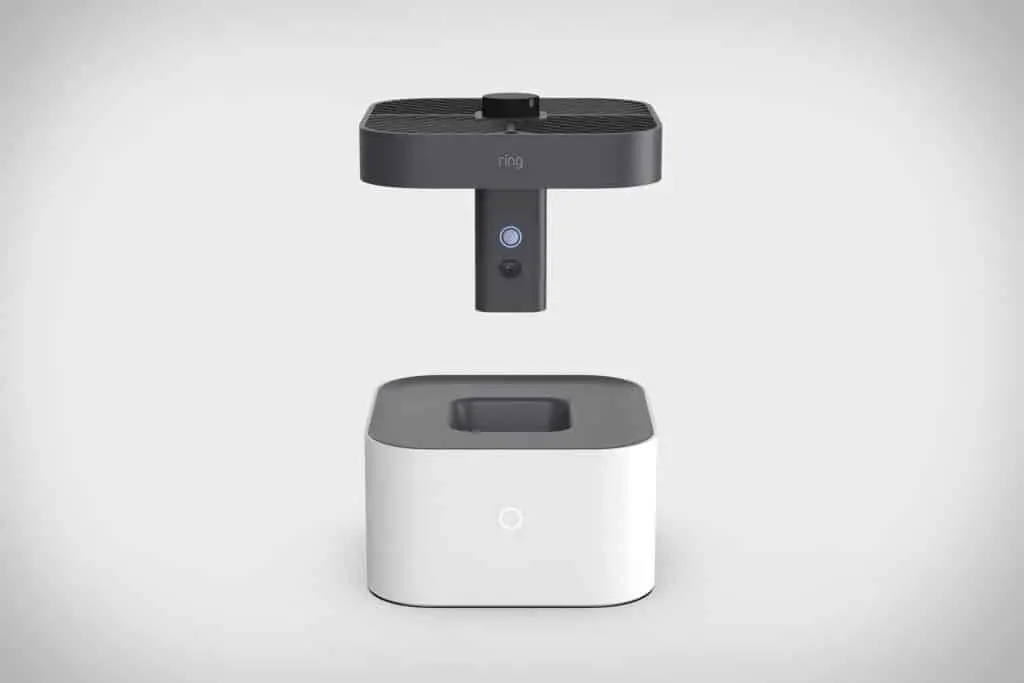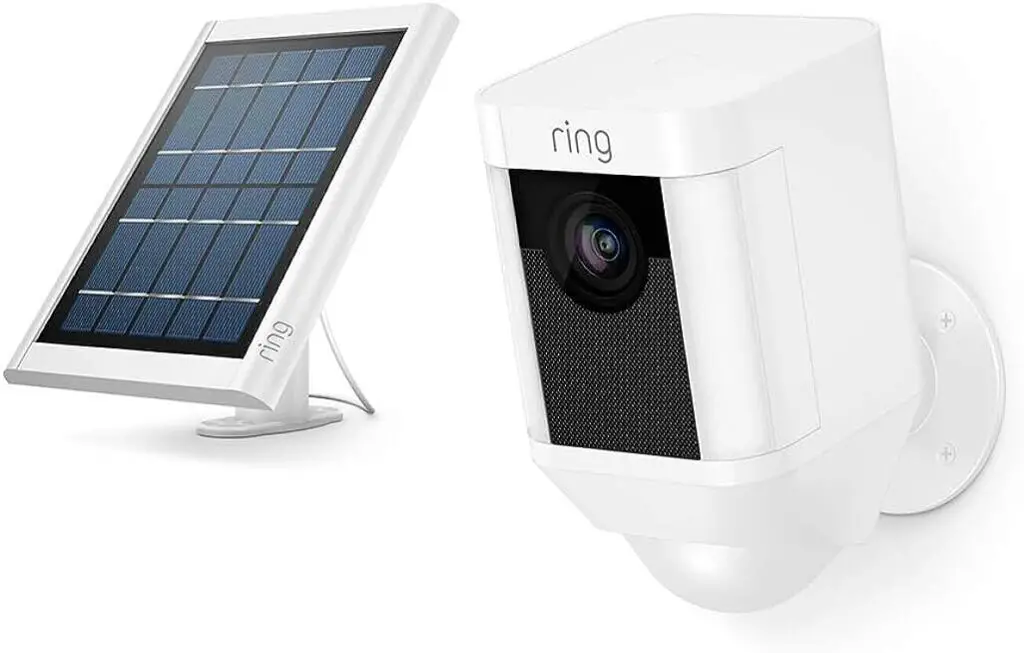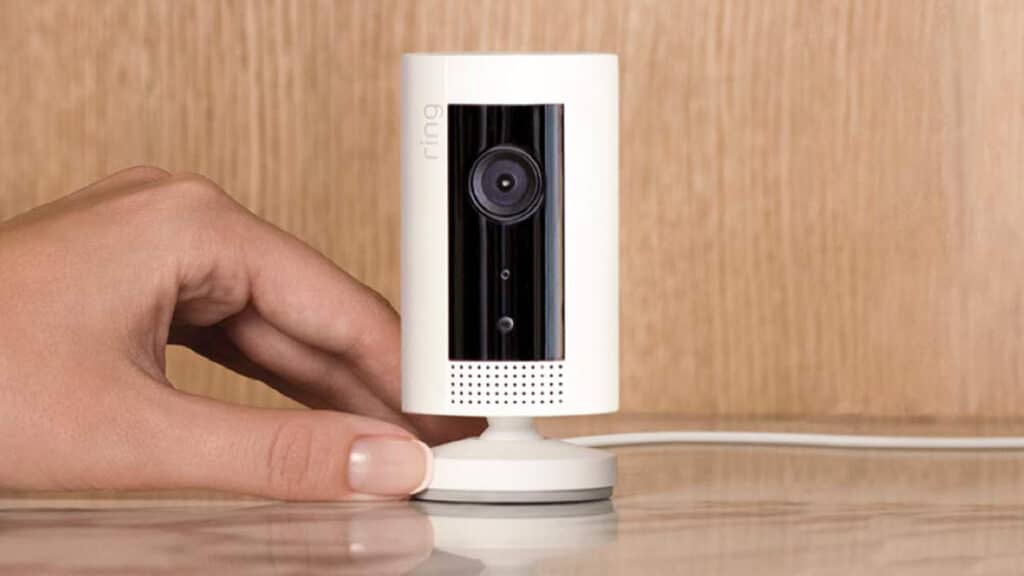Introduction
The proliferation of smart home technology has brought numerous conveniences to modern living, with Ring cameras leading the charge in the realm of home security. As a pioneer in the field of smart doorbell and security systems, Ring has gained widespread popularity due to its ease of use, remote access, and real-time monitoring capabilities. These devices have empowered homeowners to keep a vigilant eye on their properties even when miles away, fostering a sense of security and peace of mind.
The growing use of technology in homes poses privacy, cybersecurity, and vulnerability concerns. Although these gadgets promise increased protection, homeowners are increasingly concerned about unwanted access or manipulation. With each technological innovation, bad actors find new ways to abuse devices, putting users’ privacy and safety at risk.
It will also identify weaknesses that hackers could use to disable or compromise smart home surveillance devices. By recognizing and analyzing these gaps, we can comprehend smart home security concerns and make informed privacy decisions. As smart home technology grows more popular, security issues must be addressed and threats monitored.

Why did my Ring camera get deactivated?
When you say “deactivated,” are you referring to the Camera going offline? If so, your Ring device is not connected to your WiFi, and you must reconnect it. If it fails to reconnect, reboot your Camera and then try again. To reboot it, you press and hold the setup button on the Camera for 20–25 seconds.
Understanding the causes of Ring camera deactivation is essential to fixing the problem and preventing it. Ring cameras are often deactivated for the following reasons:
Problems with power: Ring cameras need stable power. A power outage may disable the camera until power is restored. Deactivation might also result from camera power supply or battery issues.
Internet Connectivity Issues: Ring cameras need a stable internet connection to send data and allow remote access. If the camera loses internet, it may appear inactive until it reconnects. Ring routinely changes firmware to improve camera performance and security. Camera deactivation may occur during the upgrade, but it should reactivate afterward.
Account Issues: Ring could turn off your camera to avoid problems with payment or safety. Ring cameras can have program problems or malfunctions that temporarily turn them off, just like any other technology. Often, troubleshooting or program updates are needed to fix these problems.
Security: To preserve user privacy, Ring may deactivate a camera if they suspect suspicious activity or security breaches.
How do I temporarily disable my Ring camera for all users?
Disable the ring camera temporarily by opening the Ring app on your handset device, then click the three lines on the top left. Tap which devices you intend to adjust, and then turn the record motion off. Ring cameras provide real-time access to cloud-based recording.
You can temporarily disable your Ring camera for all users to protect privacy during a family gathering or maintenance work. Steps to do this:
Enter Ring App: Launch the Ring app on your phone or tablet. Only the owner or admins can change camera settings, so log in with their account.
Pick the Camera: Tap the camera to temporarily disable. This opens the camera’s live stream and settings.
Find “Privacy Mode” or “Disable Camera” under camera settings. Wording may vary by Ring app or camera model. Change this to enable Privacy Mode. This setting disables the camera for everyone, including you.
Verify Action: Some Ring apps want you to be sure of your choice before they move forward. Confirm the brief turnoff of the camera. Once you turn on Privacy Mode, no one else will be able to see the camera’s live feed, and it won’t record until you turn it back on. To turn the camera back on, follow the same steps again and turn off Privacy Mode.
How do I know if my Ring has been hacked?
In the login history, illegal logins from unexpected places indicate that someone has hacked into your camera settings, compromising your security.
Protecting your privacy and security requires checking your Ring camera or account for hacking. These signs may indicate a hacked Ring device:
Unauthorized Access: If you notice unexpected changes in your Ring settings, such as altered camera angles, motion detection settings, or unfamiliar devices connected to your account, it could be a sign of unauthorized access.
Strange Recordings: Check your camera’s recorded footage for any suspicious or unfamiliar activity, such as unknown individuals accessing your property or strange sounds in your home.
Unusual Notifications: Be wary of receiving unusual or excessive notifications from your Ring camera, especially those indicating motion or activity that you cannot explain.
Strange Account Activity: Your Ring account may be compromised if you see unrecognized login attempts or logins from unusual locales.
Disrupted Functionality: A hacked Ring camera may experience erratic behavior, frequent disconnects, or sudden reboots without any apparent reason.
Unauthorized Devices: Check the list of authorized devices in your Ring account. If you see devices you don’t recognize, it could indicate unauthorized access.
Account Access from Third-Party Apps: Review the list of third-party apps that have access to your Ring account. Revoke access to any apps you don’t recognize or no longer use.

Does turning off Wi Fi disable Ring camera?
No, your phone cannot access the Ring camera while WiFi is off. The camera cannot be accessed from a mobile device if the WiFi is off.
Turning down Wi-Fi does not disable a Ring camera, but it greatly reduces its functionality. Ring cameras need a stable internet connection for real-time monitoring, remote access, and other smart capabilities. Disabling Wi-Fi prevents the camera from communicating with the Ring app or cloud servers.
Ring cameras’ Wi-Fi off behavior:
Without an internet connection, you can’t use the Ring app to view your Ring camera’s live view remotely. Live view requires an internet connection to transmit camera video to your device.
Your Ring camera cannot connect to the Ring cloud servers without Wi-Fi, so it cannot transmit motion alerts or notifications to your phone or other devices.
No Cloud Storage or Event History: Ring cameras store footage and event history in the cloud. The camera cannot upload or access footage without Wi-Fi. When the camera loses Wi-Fi, the Ring app will show it as offline.
Limitations: Ring cameras may record locally to an onboard memory card (if available), but their smart functions and remote accessibility will be disabled without an internet connection.
Camera Health Status: Turning off Wi-Fi may tell the Ring app that the camera is offline.
Can you disable someone else’s Ring?
You won’t be able to control or change any of the device settings after your device is deactivated. Your videos are stored in the cloud only with a Ring Protect Plan, and the storage time may vary based on your Video Storage Time settings.
Ring cameras and other smart home devices are protected by passwords and other security measures to prevent unauthorized access. Accessing someone else’s Ring camera without their consent is considered hacking and is a criminal offense in many jurisdictions.
If you have concerns about the use of a Ring camera or any other smart home device, it’s essential to address the issue through proper channels:
Communicate: If you have privacy or security concerns related to someone else’s Ring camera, talk to the owner or the responsible person and express your worries. Open communication can help resolve any misunderstandings or issues.
Contact Ring Support: If you believe that a Ring camera is being misused or poses a risk to privacy, you can report the concern to Ring’s customer support. They have protocols in place to address potential misuse of their products.
Legal Authorities: If you suspect that someone is using a Ring camera or any other smart device for illegal purposes, such as spying or harassment, you may need to report the matter to the appropriate legal authorities in your area.
Can someone stop Ring from recording?
Can someone jam my Ring camera? As most Ring cameras are completely dependent on Wi-Fi to function, it is possible to use a jammer to block any Wi-Fi signal and prevent them recording anything.
As with any technology, it is possible for someone with the necessary knowledge and access to interfere with or stop Ring from recording. However, doing so without proper authorization is illegal and unethical, as it violates the privacy and security of the Ring camera owner.
There are several potential methods that someone might use to stop Ring from recording:
Physical Tampering: If an unauthorized person gains physical access to the Ring camera, they might attempt to disable it by tampering with the device or disconnecting its power source.
Hacking the Account: If someone gains unauthorized access to the owner’s Ring account, they could potentially disable or manipulate the camera’s recording settings.
Interfering with Wi-Fi: An intruder might try to disrupt the camera’s internet connection by blocking Wi-Fi signals or interfering with the home network.
Software Exploits: Hackers may exploit software vulnerabilities in the Ring camera or the associated app to gain control over the device’s functionality, including recording.
Denial-of-Service (DoS) Attacks: A DoS attack aims to overwhelm the Ring camera or its servers with excessive traffic, causing it to malfunction or become unresponsive.
Are there any privacy concerns with Ring cameras?
Privacy concerns have been raised regarding Ring cameras in the past, particularly concerning data handling and sharing with third parties. However, Ring has made efforts to address these issues and provide users with more control over their data. Before setting up your Ring camera, review the privacy settings and understand how your data will be used.
Yes, there are privacy concerns associated with Ring cameras and other smart home surveillance systems. While these devices offer valuable security features, they also raise important questions about data privacy, surveillance practices, and potential misuse of collected information. Some of the key privacy concerns with Ring cameras include:
Data Collection: Ring cameras capture video footage and audio from the surrounding area, which may include private spaces beyond the user’s property. The extent of data collection raises concerns about the potential invasion of privacy for neighbors and passersby.
Cloud Storage: Ring cameras often store recorded footage in the cloud. Users must trust the camera’s manufacturer to handle this data responsibly and protect it from unauthorized access.
Third-Party Access: Some privacy concerns arise from Ring’s partnerships with law enforcement agencies. These partnerships may involve sharing data and video footage with authorities, raising questions about the extent of user consent and oversight.
Security Vulnerabilities: Like any connected device, Ring cameras may be susceptible to hacking or unauthorized access. If an intruder gains access, they could potentially spy on or misuse the camera for malicious purposes.
Audio Recording: Ring cameras with two-way audio capabilities enable users to communicate with visitors. However, this feature also raises concerns about inadvertently recording private conversations or misusing audio data.
Location Tracking: Ring cameras often have geolocation features, which can disclose the owner’s whereabouts and daily routines, raising concerns about personal security and stalking risks.
How can I protect my Ring camera from unauthorized access?
Protecting your Ring camera from unauthorized access is crucial for maintaining your privacy and security. Implement the following measures to enhance the protection of your Ring camera:
Ring Account Password: Create a strong, unique password. Never reuse passwords from other accounts or use common or readily guessable passwords.
Enable 2FA for extra security. A one-time code delivered to your phone and your password are needed to log in with 2FA.
Maintain your Ring camera’s firmware and software with regular updates. Staying updated with manufacturer security upgrades is crucial.
Check Authorized Devices and Shared Users: Check your Ring account’s approved devices and shared users regularly. Untrustworthy devices and users should be removed.
Use an encrypted password to secure your home Wi-Fi network. Avoid default or guessable network names and passwords.
Customize Ring camera privacy settings to your liking. Limit camera data collection and access.
Disable Unused functions: To decrease attack vectors, disable unnecessary Ring camera functions.
Secure Physical Access: Keep your Ring camera out of reach of intruders and tampering.
Educate Family Members: Teach family members about Ring camera cybersecurity and privacy best practices.
Monitor Activity: Check your Ring camera’s activity logs and notifications for unusual behavior or login attempts.
Report Suspicious Activity: Report unauthorized access or suspicious activity to Ring’s customer support immediately.
What should I do if I suspect my Ring camera has been compromised?
If you suspect that your Ring camera has been compromised, it’s crucial to take immediate action to protect your privacy and security. Follow these steps to address the issue:
To prevent unwanted access, disconnect the Ring camera from its power supply or disable Wi-Fi.
Ring account passwords should be changed immediately. Create a strong, unique password with letters, numbers, and symbols.
Set up Ring 2FA if you haven’t already. 2FA requires a phone-sent verification code for login, adding security.
Contact Ring Support: Contact Ring’s customer service immediately. Report the alleged compromise and offer any relevant information to aid their investigation.
Check Authorized Devices and Shared Users: Check your Ring account’s approved devices and shared users. Remove suspicious devices and revoke access for unknown users.
Update your Ring camera’s firmware and software. Manufacturers often provide security fixes. Ring camera firmware and software updates. Manufacturers frequently update security.
Run a full scan on your computer, smartphone, and tablet to look for malware or viruses that may have compromised it.
Secure Your Network: Check and improve your home Wi-Fi security. Strong passwords and network encryption are recommended.
Educate Family Members: Inform Ring camera users and family members about the potential compromise and cybersecurity best practices.
Monitor Activity: Check your Ring camera’s activity logs and notifications for strange behavior or login attempts.
Reset and Reconfigure: If the issue persists or you cannot establish the extent of the compromise, factory reset and reconfigure the Ring camera.

Conclusion
The increasing adoption of smart home surveillance systems, exemplified by Ring cameras, has undoubtedly transformed the way we approach home security. The convenience of remote monitoring and real-time access to our properties has offered a sense of reassurance and control like never before. However, the question, “Can someone disable my Ring camera?” raises legitimate concerns about the privacy and security of these smart devices.
No technology is immune to threats, despite manufacturers’ security procedures. Both users and manufacturers must be watchful as technology changes and bad actors adopt new methods to exploit holes. Protecting Ring cameras and other smart home devices requires proactive homeowner action. Set strong, unique passwords, enable two-factor authentication, upgrade firmware, and stay current on manufacturer security updates.
Meanwhile, manufacturers must engage in R&D to strengthen their goods’ security features. In the competitive smart home industry, regular security audits, bug bounty programs, and clear communication with customers about risks and mitigations establish confidence and ensure brand longevity.

